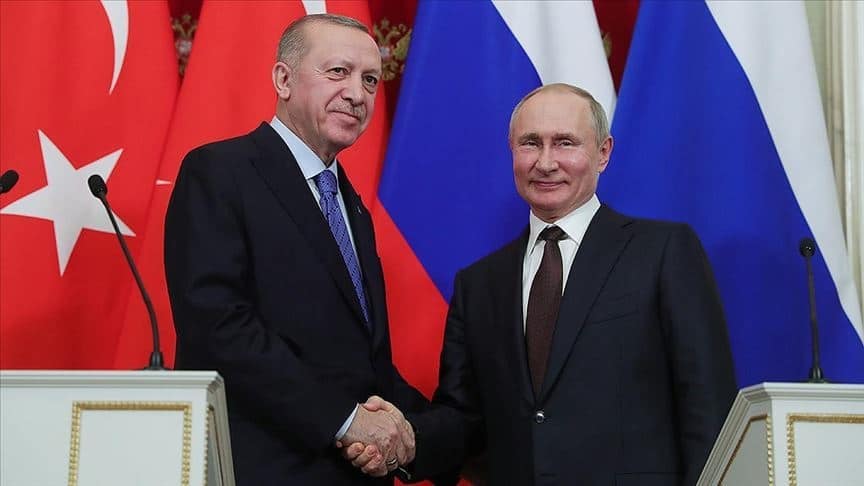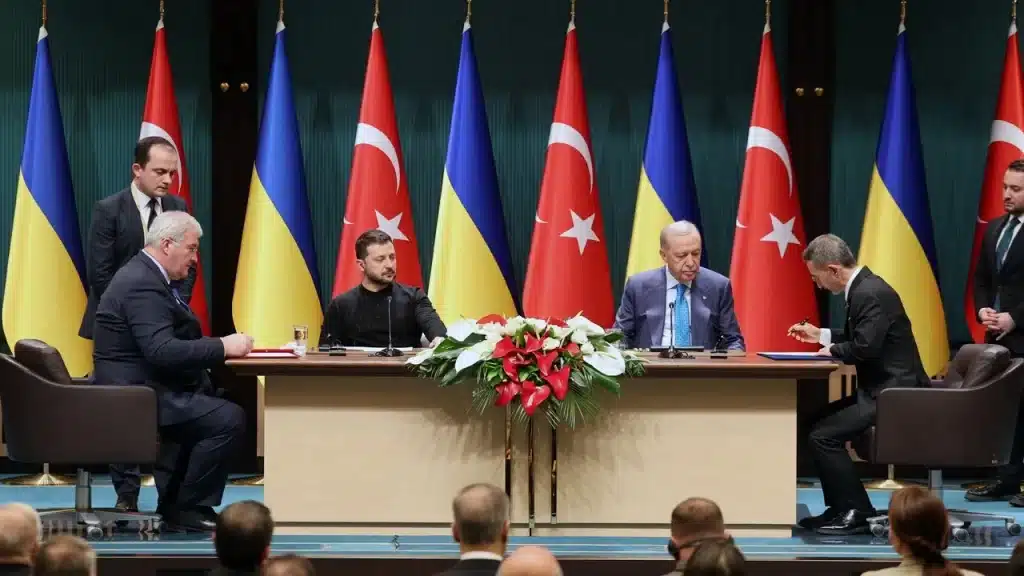
The Impact of Sanctions on Russia and the Need for Economic Cooperation
The ongoing geopolitical crisis between Russia and Ukraine has led to a series of international sanctions that have severely impacted businesses and economies on both sides. While these measures were implemented as a deterrent, they have, in many cases, resulted in significant economic distress for both Russia and the global market. In this context, diplomatic dialogues hold great importance, as they can pave the way for constructive trade programs and economic stability.
Both Russia and Ukraine have the sovereign right to protect their territorial integrity. However, war is never the right solution. Instead, ensuring peace and mutual respect for both nations’ aspirations should be the ultimate goal. It is crucial to acknowledge that economic cooperation, rather than conflict, is the foundation for long-term prosperity.
Ukraine plays a vital role in global trade, particularly in agricultural exports, energy transit, and industrial production. The country is one of the world’s largest exporters of wheat, sunflower oil, and other agricultural commodities, making it a key player in global food security. Any disruption in Ukrainian trade affects global markets, causing inflationary pressures and food shortages worldwide. Similarly, Russia holds significant economic power, particularly in energy exports, minerals, and industrial capabilities. Russia’s economic activities have a widespread impact on international trade, and the ongoing sanctions have led to supply chain disruptions, increased energy costs, and economic instability in various regions.

History has shown that war benefits no one. In every war, the so-called winner is merely the party that has suffered less. The reality remains that war results in destruction, economic decline, and long-term instability. “In war, there are no true winners; the only measure is who loses less.” This statement holds particularly true for the Russia-Ukraine conflict, where both nations are experiencing economic downturns, loss of human capital, and deteriorating infrastructure.
For the rest of the world, this war does not bring any gains—it merely creates a cause-and-effect chain that disrupts global trade, supply chains, and economic stability. Rather than fostering division, nations must prioritize diplomatic negotiations that lead to sustainable economic solutions.
From a commercial perspective, Turkey has a unique and strategic role in this conflict. Positioned as a bridge between Europe and Asia, Turkey plays a crucial role in facilitating trade, diplomacy, and energy transit. The country has maintained an active diplomatic stance, promoting dialogue between Russia and Ukraine while also ensuring continued trade relations with both sides. Turkey’s geographical and economic position allows it to serve as a mediator, reinforcing the idea that economic cooperation should always take precedence over political conflicts.
1. Introduction
- The geopolitical crisis between Russia and Ukraine has led to international sanctions.
- These sanctions have caused economic distress for both Russia and the global market.
- Diplomatic dialogues are essential for constructive trade programs and economic stability.
2. Sovereign Rights and the Importance of Peace
- Both Russia and Ukraine have the right to protect their territorial integrity.
- War is not a sustainable solution; peace and mutual respect should be the priority.
- Economic cooperation is crucial for long-term prosperity.
3. Ukraine’s Role in Global Trade
- Ukraine is a major player in global trade, particularly in:
- Agricultural Exports:
- One of the world’s largest wheat exporters.
- Leading exporter of sunflower oil.
- Significant producer of barley and corn.
- Energy Transit:
- A key transit country for natural gas supplies to Europe.
- Industrial Production:
- Strong in metallurgical industries, including steel and iron production.
- Technology and IT Services:
- Growing hub for software development and outsourcing.
- Agricultural Exports:
4. Russia’s Role in Global Trade
- Russia holds economic power in various sectors, particularly in:
- Energy Exports:
- One of the largest oil and gas exporters in the world.
- Supplies a significant portion of Europe’s energy needs.
- Mineral and Raw Material Exports:
- Major exporter of nickel, aluminum, and other essential metals.
- Industrial Capabilities:
- Strong arms and defense industry.
- Significant contributor to the chemical and machinery sectors.
- Agricultural Exports:
- Leading exporter of fertilizers, particularly potash and urea.
- Significant producer of wheat and other grains.
- Energy Exports:
5. The Reality of War: No True Winners
- War leads to destruction, economic decline, and instability.
- Quote: “In war, there are no true winners; the only measure is who loses less.”
- The Russia-Ukraine conflict has caused economic downturns, human capital loss, and infrastructure damage for both nations.
- Both economies have suffered setbacks in trade, manufacturing, and international investment.
6. Global Economic Impact
- This war does not bring benefits to other nations but creates a cause-and-effect chain.
- It disrupts:
- Global trade and supply chains.
- Food security due to Ukrainian exports being affected.
- Energy prices due to sanctions on Russian supplies.
- Investment confidence in Eastern Europe.
7. Turkey’s Strategic Role
- Turkey serves as a crucial bridge between Europe and Asia.
- It plays a vital role in facilitating trade, diplomacy, and energy transit.
- Turkey has promoted dialogue while maintaining trade relations with both Russia and Ukraine.
- Turkish companies have helped mitigate supply chain disruptions by offering alternative logistics routes.
- Turkey’s Black Sea ports provide critical access for grain exports and trade continuity.
8. Conclusion
- Global economies thrive on stability and cooperation.
- War brings devastation and economic hardships.
- Diplomatic solutions and structured trade agreements are key to long-term prosperity.
- The international community should focus on economic cooperation and sustainable peace to ensure global stability.
- Recognizing the economic importance of both Russia and Ukraine is vital for future global trade stability
